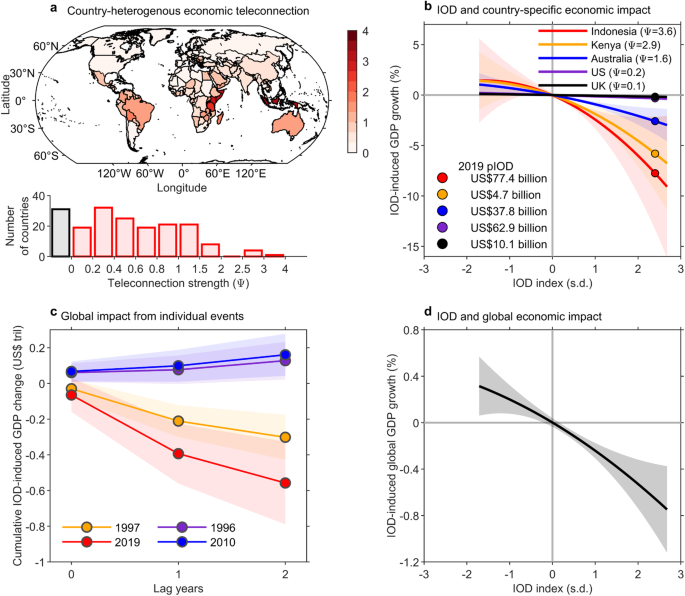
The Indian Ocean Dipole (IOD) has a significant impact on global economies, causing economic losses that disproportionately affect developing and emerging economies, according to a study published in Nature [25581560]. The positive IOD events lead to a global economic loss that continues for two years after the initial shock. The study estimates that the economic loss from the 2019 positive IOD event amounted to US$558 billion, equivalent to 0.67% of global economic growth [25581560].
The research also highlights that under a high-emission scenario, the projected intensification of IOD amplitude could lead to additional economic losses. The median additional loss is estimated to be US$5.6 trillion at a 3% discount rate, but it could be as large as US$24.5 trillion. These findings emphasize the need to address climate change and its impact on the IOD to mitigate economic risks, particularly for vulnerable economies [25581560].
The study further reveals that the impact of the IOD on global economies is largely independent of the El Niño-Southern Oscillation (ENSO), another climate phenomenon. This means that the economic risks associated with the IOD cannot be solely attributed to the effects of ENSO. The projected increase in IOD variability under climate change is expected to exacerbate the economic risks, further highlighting the need for action to address climate change and its impact on the IOD [25581560].